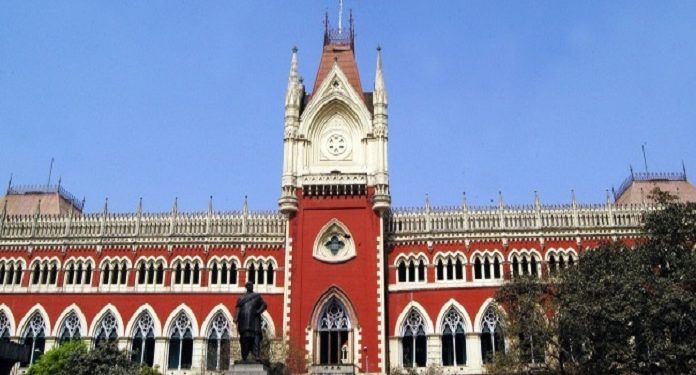The Calcutta High Court in its recent order acquitted a man of rape charges while noting that it would be incorrect to punish someone for the offence of rape if the promise to marry did not fructify due to the subsequent events, namely, opposition from family elders which is not attributable to the accused.
The Bench of Justice Joymalya Bagchi and Justice Bivas Pattanayak noted that the man/appellant was a young person and the marriage proposal didn’t come to fruition due to the opposition from elders and therefore, it wasn’t a case of sex on the false promise of marriage amounting to rape.
Case:
The Calcutta High Court was dealing with a criminal appeal filed by one Saddam Hussain directed against the 2015 judgment and order of the lower court [Additional District & Sessions Judge, Fast Track First Court, Islampur, Uttar Dinajpur] convicting him under Section 376 IPC and sentencing him to suffer imprisonment for 10 years, reported Livelaw.
The prosecution case as alleged against the appellant was to the effect that he cohabited with the victim girl, who was a minor, on the false promise of marriage and as a result, the girl became pregnant. However, when she asked him to marry her, he evaded the issue and refused to marry.
During the trial, the prosecution examined eight witnesses to prove its case. The defence of the appellant was one of innocence and false implication. In conclusion of the trial, the Court convicted and sentenced the appellant, as aforesaid.
Thereafter, moving the High Court with his appeal, he argued that the victim was a consenting party and the Marriage between the couple could not fructify due to the resistance of the parents of the appellant.
Calcutta High Court
At the outset, the Court observed that the evidence of record clearly established that the appellant had cohabited with her on the promise of marriage, however, the Court added, the initial cohabitation wasn’t forceful as such allegation was significantly absent in the FIR.
Further, taking into account the argument that the appellant had agreed to marry her but the marriage could not fructify due to the resistance of his parents, the Court observed thus,
Hence, it cannot be said that the appellant did not intend to marry her at the time when they cohabited…Mere failure to keep a promise without anything more cannot lead to the irresistible conclusion that the promise had been dishonestly made from the inception.
Against this backdrop, the Court concluded that it cannot be said that the appellant did not have the intention to marry the victim at the time when they cohabited but such marriage was not possible due to obstruction from elders in the family.
Age of the Girl
Regarding the argument of the prosecution that the girl was a minor at the time of the incident, the Court found that she was above 16-years at the time of occurrence (2010) and therefore, the Court held, the victim had crossed the age of consent.
In light of the aforesaid discussion, the Court set aside the conviction and sentence and acquitted the appellant of the charges levelled against him.
The age of consent has revised from 16 to 18 years in 2013. However, many argue that this is a grey area, which leads to many false rape cases being filed by girls between 16-18 years of age, if relationship fails.
ALSO READ –
Haryana | 40.3% Rape Cases Between 2018-2020 Declared False By State Crime Record Bureau data
READ ORDER | False Rape Cases Cannot Be Made To Settle Personal Scores; Need To Be Dealt With Iron Hand
READ ORDER | India Is Conservative Society; Girls Don’t Indulge In Sex Unless Backed By Assurance Of Marriage
READ ORDER | Orissa High Court Acquits Man From False Attempt To Rape Charge After 30-Years
Feedback | Open Letter To Delhi High Court For Quashing Rape Charges Filed By Woman ‘Out Of Anger’
ALSO WATCH –
Interview | Abhijit Iyer-Mitra Discusses Menace Of False Rape Cases In India
Join our Facebook Group or follow us on social media by clicking on the icons below
Join our Facebook Group or follow us on social media by clicking on the icons below
If you find value in our work, you may choose to donate to Voice For Men Foundation via Milaap OR via UPI: voiceformenindia@hdfcbank (80G tax exemption applicable)































